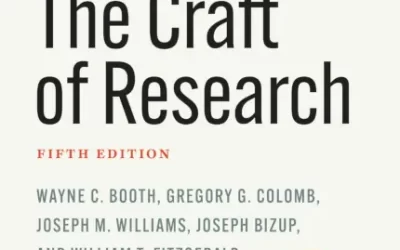“Publish or Perish” tends to be the unfortunate moniker of the scholarly publishing world nowadays. Experts have to publish their work (and in the right journal, mind you) to get the citations and recognition needed to advance in their field. This mindset has of course led to a sea of bad actors taking advantage of researchers, with various scams promising quick publications and high engagement metrics. The latest scam: selling citations.

In 2023, someone purporting to be a researcher appeared with a profile on Google Scholar. In just a few short months, the researcher was listed as the 36th most-cited in their field. They had an h-index of 19 with 19 academic articles “published” that had each been cited at least 19 times. The accomplishments in such a short period of time would be impressive for a seasoned researcher but even more impressive for a new researcher in a field.
Or at least it would be impressive if any of it was real. The researcher was fictitious. His institution was completely bogus. The profile was created by researchers at New York University Abu Dhabi in an attempt to study and analyze citation practices in scholarly publishing. All of the articles written by the researcher were in fact written by ChatGPT and of course the citations weren’t real. Some of the citations were just from the fake researcher excessively citing their own fake work (the definition of a snake eating its own tail), but more dishearteningly, 50 of the citations had been purchased for $300 from a “citation booster service.”
This manipulation is a dangerous new wrinkle in the publishing game. In academic research, an author’s h-index and ability to generate citations often greatly help in the hiring process as well as in negotiating salaries, contract extensions, and promotions. A study shows that some researchers are now going to “extreme” measures to inflate and manipulate their scores for personal gain. Before creating the fake account to explore the “citation boosters,” the team behind the study flagged 114 researchers who had received more than 18 citations from a single piece of work, as it is usually uncommon for researchers, “even established scientists to have more than a handful of citations stemming from the same source.” In one instance, 90% of a manuscript’s references came from work written by one researcher. The publications all happened to come from a journal in which the researcher is an editor.
Most of the citations came from low-quality journals and included preprints. In many cases, the paid citations weren’t even really citations in the text. Articles had simply been added in bulk to the reference section to boost the authors’ citations. The researchers behind the study who created the fake Google Scholar account and posted the AI-generated articles were easily able to find the citation booster accounts and reached out to them on WhatsApp to purchase 50 citations packages. Within six weeks, five papers were published, citing 10 of the AI-generated papers created by the study authors.
It’s unknown how many researchers might be using citation booster services to buy clout. While this study only focused on the most extreme examples, the authors do believe more scientists are likely using these services to artificially boost their citations. “The problem is big, and it has been growing fast in the last 10-15 years,” says neuropsychologist Bernhard Sabel. He puts the onus on databases like Google Scholar to look more closely into the fraud and address it. “They have the muscles and should take action to cleaning up this mess of fraud citations,” he says.
While the problem might not be widespread at this point, it continues to prove that there are glitches in the publishing system and that there are always those who will try their best to game the system. What are some steps you think databases can take to stop fraudulent citations? Let us know in the comments.
By: Chris Moffitt
Chris is a Managing Editor at Technica Editorial




